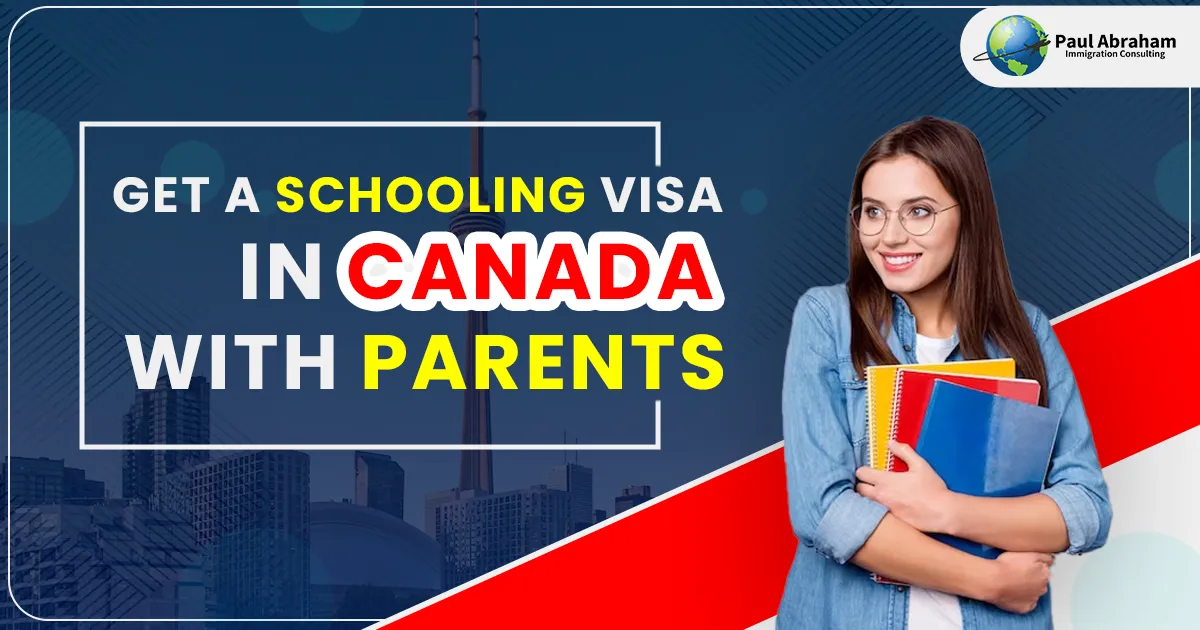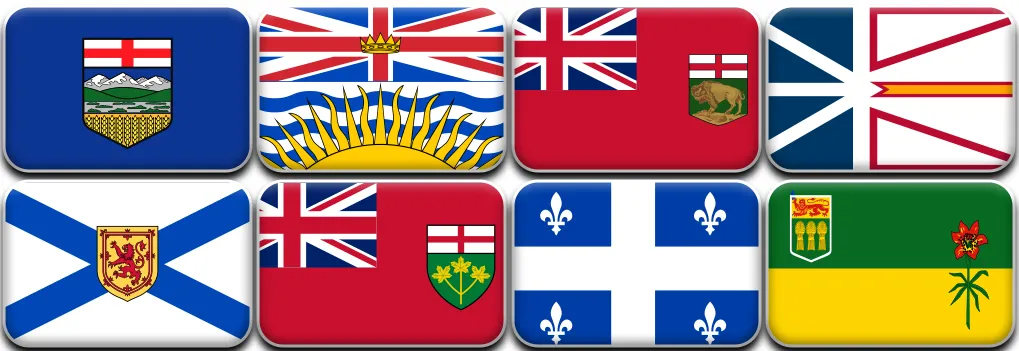How Do You Get A Schooling Visa In Canada With Parents?

Last Updated On : November 02 , 2023
Are you a foreign national who wants their children to enroll in a Canadian primary or secondary school? If so, this guide will walk you through the process of obtaining a schooling visa in Canada, especially if your parents are temporary residents (TR).
We will cover eligibility requirements, processing times, the cost of education, the best provinces for schooling, and provide essential tips for a successful schooling visa application.
Can I Apply to Study in a Canadian School if My Parents are TR?
Yes, Canada's education system is known for its quality, and studying in Canada can offer valuable opportunities for international students. Parents with temporary resident status in Canada can apply for a schooling visa for their children.
However, it's crucial to meet the necessary eligibility requirements to ensure a smooth application process. Make sure the school you plan to attend is recognized as a DLI by the Canadian government. Enrolling in a DLI is a fundamental requirement for international students.
How to Check If You Have to Apply for a Minor Study Visa
For detailed information on the application process for minor children studying in Canada, refer to the official guidelines provided by the Immigration, Refugees, and Citizenship Canada website.
These guidelines outline the specific requirements and circumstances under which minors need to apply for a study permit.
This typically involves completing the appropriate forms, gathering the required documents, and submitting the application to the appropriate authorities.
Eligibility Requirements for Schooling Visa
To be eligible for a schooling visa in Canada, you must meet the following requirements:
Be Accepted into a Designated Learning Institution (DLI) in Canada:
Ensure your child is admitted to a school that is recognized as a DLI. A DLI is an educational institution in Canada that has been approved by the government to host international students. DLIs can include schools, colleges, universities, and other educational organizations.
To be eligible for a Canadian schooling visa, you must be accepted into a DLI. Apply to the DLI of your choice by following their admission process. Typically, this involves completing an application form, paying any required application fees, and providing the necessary supporting documents, such as academic transcripts, proof of language proficiency (if required), and a valid passport.
Have Proof of Financial Support:
You should be able to demonstrate that you have enough financial resources to cover tuition fees and living expenses for your child during their stay in Canada. To meet this requirement, you must demonstrate that you have the necessary financial resources to cover your tuition fees and living expenses during your child's stay in Canada.
Gather bank statements, income certificates, or other financial documents that show you have access to the required funds. The Canadian immigration authorities may ask for a certain minimum amount, so ensure that the funds are readily available.
Meet Language Requirements:
Your child may need to demonstrate proficiency in either English or French, depending on the language of instruction at their chosen school. Depending on the language of instruction at your school, you may be required to take a standardized language proficiency test.
In Canada, the two main language proficiency tests are the International English Language Testing System (IELTS) for English and the Test de connaissance du français (TCF) or Test d'évaluation de français (TEF) for French.
Be in Good Health and Have No Criminal Record:
Health and security checks may be required, so it's essential that your child is in good health and has a clean criminal record. The specific tests and evaluations will be determined by the panel physician, but they generally include a physical examination, blood tests, and X-rays.
It's essential to use a panel physician approved by the Canadian government, as they will send the results directly to the immigration authorities.
How Much Time Does the Schooling Visa Process Take?
The processing time for a schooling visa in Canada can vary, but it typically takes several weeks to a few months. It's essential to start the application process well in advance to ensure that your child can enroll in school on time.
The processing time may vary depending on the time of year. It's common for processing times to be longer during peak application periods, such as the months leading up to the start of a new school year. The accuracy and completeness of your application can impact the processing time.
Is Education Free in Canada?
Education in Canada is not entirely free, but it is significantly subsidized by the government, resulting in lower tuition fees for Canadian citizens and permanent residents. However, for international students, including those on schooling visas, education in Canada comes at a cost.
Primary and secondary education in public schools in Canada is typically funded by the government. This means that Canadian citizens and permanent residents can access free or heavily subsidized education up to the high school level.
However, for international students, there may still be some fees associated with attending public schools, such as administrative fees or fees for extracurricular activities. When it comes to post-secondary education, including colleges and universities, there are tuition fees for both domestic and international students.
Tuition fees for international students are typically higher than those for Canadian residents. The exact fees vary depending on the institution and the specific program of study.
Which Province Would Be Best for Schooling in Canada?

The choice of the province in Canada for your child's education can depend on various factors, such as your family's location, language preferences, and the specific school programs available. Popular provinces for international students include Ontario, British Columbia, and Quebec.
Ontario is Canada's most populous province and offers a wide range of educational opportunities. It is home to many prestigious schools and institutions, including the University of Toronto. The city of Toronto, in particular, is known for its diverse and multicultural environment.
British Columbia is known for its excellent K-12 education system and a focus on outdoor education. The province offers a mild climate and beautiful natural landscapes, making it an attractive choice for families.
Quebec is the primary French-speaking province in Canada. If your child is fluent in French or wishes to become fluent, Quebec provides an immersive French-speaking environment. Montreal, in particular, offers a rich cultural experience.
Alberta is known for its strong economy and educational institutions. Cities like Calgary and Edmonton have reputable schools and offer a high quality of life.
Nova Scotia provides a welcoming and friendly environment. The province offers a unique maritime culture and is home to several respected universities and schools.
Manitoba is known for its affordable education and cost of living. The capital city, Winnipeg, offers a range of schooling options. Newfoundland and Labrador.
Newfoundland and Labrador are known for their scenic beauty and outdoor activities. The province offers a close-knit and friendly community.
Saskatchewan offers a cost-effective education and a growing job market. The province has several educational institutions.
Tips for a Successful Schooling Visa Application
Here are some tips to increase the chances of a successful schooling visa application:
- Begin the application process well in advance.
- Ensure all required documents are complete and accurate.
- Seek guidance from an immigration expert or consultant.
- Stay updated with the latest immigration rules and regulations.
- Prepare your child for language proficiency tests if necessary.
Final Thoughts
Obtaining a schooling visa in Canada for your child, even with temporary resident parents, is a manageable process if you meet the eligibility requirements and follow the necessary steps. The choice of province, costs, and application tips play crucial roles in making the experience successful and rewarding for your child's education in Canada.
For more information on designated learning institutions, schooling visas, or the Canadian education system, refer to our immigration blogs and explore the resources provided by the official Canadian government website.
